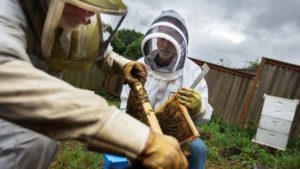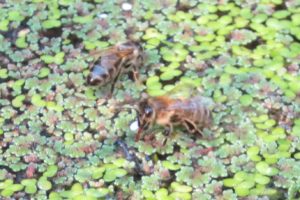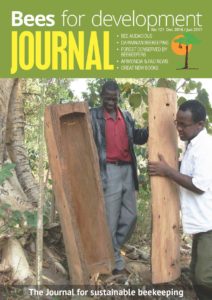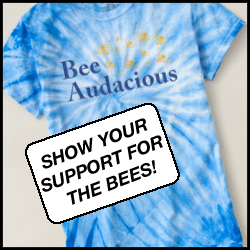Manifesto – the Call to Action that inspired Bee Audacious
by Mark Winston (originally published at winstonhive.com, June 22, 2015.)
We often support the value of bees with economic arguments, neglecting the dimension of values, the principles we hold
important and the personal and environmental standards that should be at the heart of beekeeping rather than at its fringes.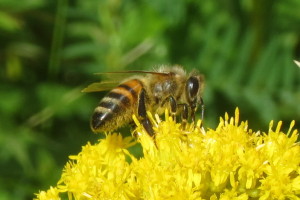
The current serious issues facing bees suggest it is time for a new manifesto to guide beekeeping, one that recognizes beekeepers as stewards of both managed and wild bees, promoters of healthy environments, managers of economically sustainable apiaries and paragons of collaboration and cooperation. It’s time for some audacious thinking about the future of beekeeping.
Such a manifesto might look something like this:
- Beekeepers are Stewards of their honeybees, lightly managing colonies with minimal chemical and antibiotic input.
- Beekeepers are Promoters of healthy environments in which wild and managed bees can thrive, including reduced chemical inputs and mixed cropping systems in agricultural settings and diverse unmanaged natural habitats in urban and rural areas.
- Beekeeping is Economically Viable, so that hobbyists can enjoy their bees with some honey to give away, sideliners meet expenses with a bit of profit and commercial beekeepers have a consistent and sustainable income sufficient to support a family without the heavy personal stress associated with contemporary beekeeping.
- Beekeeping organizations are Inclusive, Collaborative and Cooperative, encompassing hobbyists with one hive to commercial beekeepers with thousands, wild bees enthusiasts to honeybee keepers, and honey producers to pollinators, under one umbrella organization that puts the health and prosperity of bees and the environment that supports them first.
We need to recognize that the good old days are gone. Bees are no longer able to respond with the resilience that allowed us to manage honeybees intensively and depend on healthy ecosystems for wild and managed bees to thrive. Today, pesticides are ubiquitous, diseases and pests rampant, and the diversity and abundance of bee forage has plummeted.
It’s a new day, and below are just a few suggestions for what a manifesto-driven bee community might look like. Note that every idea goes against conventional wisdom, but keep in mind that these are not conventional times for bees:
Perhaps we can no longer take copious honey harvests from our bees. If so, a good first step would be to take ¼ less honey and feed that much less sugar.
Perhaps we should let colonies swarm every second year, providing a break in the brood cycle that might diminish the impact of varroa.
Perhaps we should move honeybees no more than once for pollination, recognizing that honeybees are no longer healthy enough to sustain multiple moves.
Perhaps honeybees should no longer be considered our primary agricultural pollinator, but used to supplement wild bee populations whose diversity and abundance we increase by large-scale habitat enhancement in and around farms.
Perhaps we should allow only one varroa treatment per year to prevent resistance.
Perhaps we should eliminate all antibiotic use, controlling bacterial diseases like American Foul Brood through a rigorous inspection and burning regime, as they do in New Zealand.
Perhaps we should cease the practice of feeding pollen supplements in the spring, as we now understand such feeding yields higher worker populations but weaker individual bees.
Perhaps research should rigorously analyze these “perhaps” ideas. Our research community has done a fabulous job of elucidating why honeybees and wild bees are doing poorly, but what we need now are bolder research directions towards solutions.
Researchers tend towards the more glamorous high-tech solutions, but those are unlikely to succeed and at best are far down the road. Some old-fashioned, large-scale management research is needed now, coupling studies of hive survival and wild bee abundance and diversity with economic analyses of what works best for beekeepers and crop pollination.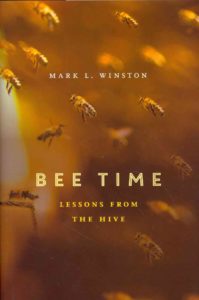
Here’s one example: I have been travelling quite a bit lately promoting my new book “Bee Time: Lessons From the Hive,” and I consistently encounter beekeepers who are not treating for varroa, but rather breeding from surviving untreated colonies. They report colony survival rates as good or better as those commercial beekeepers who treat heavily, but it’s all anecdotal. Let’s test those claims more rigorously, by organizing national projects to compare untreated surviving colonies to lightly or heavily chemically treated colonies.
Here’s another example: I know of no economic studies that demonstrate moving bees for pollination is economically superior to maintaining stationary apiaries, or that compare moving bees once, twice or more. My own opinion is that the extent of bee movement is a major contributing factor in the poor colony survival we see across North America, with 42% of colonies dying in 2013/2014 in the United States. But, I know of no data that support or dismiss my hunch.
There is a changed mind-set enveloped in my brief manifesto, one in which we consider the well being of bees as the primary directive rather than economic prosperity or beekeeper convenience. Putting bees first is the only way managed and wild bees will return to health, and beekeepers and farmers with bee-pollinated crops to prosperity.
I don’t know whether this manifesto is the right direction, or the ideas above sound, but I do know that the status quo is unsustainable.
There is a quote attributed to Einstein that is highly relevant for the future of beekeeping: “Insanity is doing the same thing over and over again and expecting different results.”
Perhaps it’s time to challenge everything we have believed about beekeeping with honeybees, and to boldly promote wild bees to become our primary commercial-level pollinators.
Perhaps it’s time to be audacious.

Professor and Senior Fellow, Simon Fraser University Centre for Dialogue
Mark Winston is Professor and Senior Fellow at Simon Fraser University’s Centre for Dialogue, and author of bestselling book “Bee Time: Lessons From the Hive“, which won the 2015 Governor-General’s Literary Award for Nonfiction.
Get your tickets – help the bees!

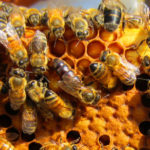 Next Post
Next Post